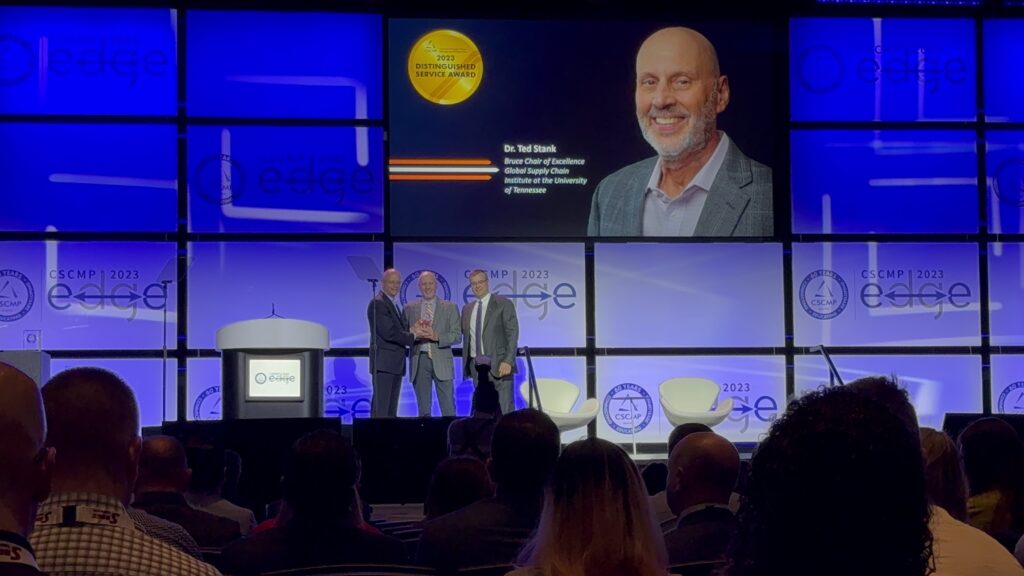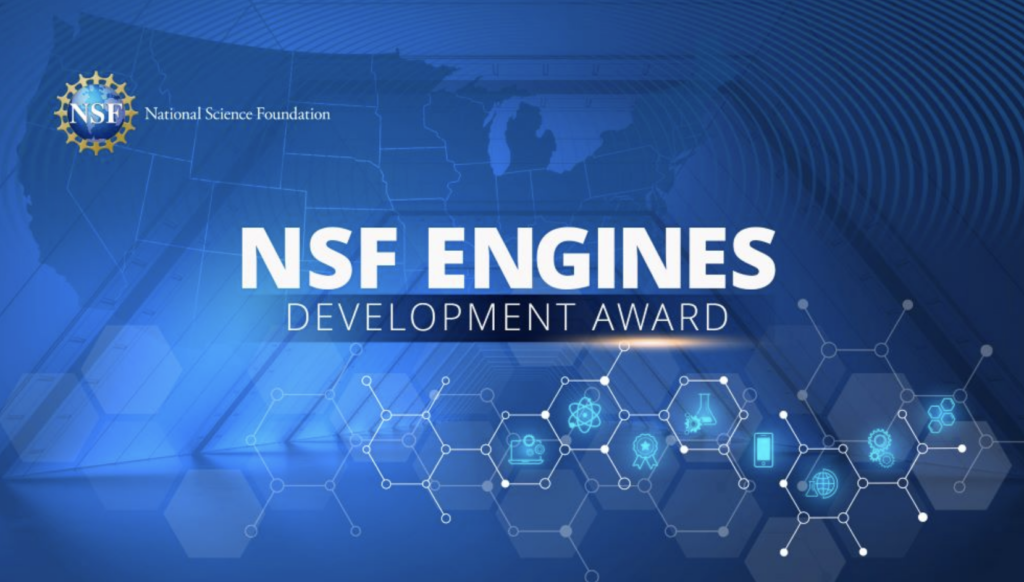Blog
Essential reading from leading researchers and scholars on the latest trends and topics relevant to global supply chain management.

Taking Leap Paid Off for MS SCM Online Grad Russell McLendon
This story is the third in a new series, Mapping Success, which shares how the Global Supply Chain Institute and UT’s supply chain management education programs impact the lives and careers of students and professionals in the industry. Read the first about how the MS SCM Online helped Ron Wallace transition from public education to procurement and how EMBA-GSC accelerated Smita Davis’s move into senior leadership.

UPS-Teamsters Negotiations: Five Questions You Need to Know the Answers To
There are very few corporate partners of the University of Tennessee’s Global Supply Chain Institute that would not be impacted by a UPS Teamsters strike. UPS delivers 20 million packages per day in the U.S., equating to about 6% of U.S. GDP. The contract between UPS and the Teamsters Union expires on July 31, and negotiations are heating up.

UT Haslam’s Ted Stank Honored with Supply Chain Hall of Fame Induction
The Council of Supply Chain Management Professionals (CSCMP) has selected Ted Stank, Chancellor’s Professor at the University of Tennessee, Knoxville, to receive the 2023 Distinguished Service Award. This selection means Stank, who is also the Harry J. & Vivienne R. Bruce Chair of Excellence in Business, co-executive director of the Global Supply Chain Institute and head of the Advanced Supply Chain Collaborative at the Department of Supply Chain Management at UT’s Haslam College of Business, will be inducted into the Supply Chain Management Hall of Fame.

SCM Summer Camp to Help Create Pathways to Success for High School Students
This summer, more than a dozen high school students from Tennessee and three other states will participate in the first-ever Supply Chain Management (SCM) Summer Camp, which runs from July 9–14 at the University of Tennessee, Knoxville. The six-day camp is organized in partnership with the Haslam College of Businesses’ Office of Community and Diversity Relations and aims to introduce rising high school juniors and seniors from underrepresented communities to the dynamic world of supply chain management.

To Sell Remanufactured Merchandise, “Show, Don’t Tell,” New Research Finds
Buying refurbished, like-new products instead of new ones is better for the environment and consumers’ wallets. When products are as personal as electric toothbrushes or earbuds, however, cost savings aren’t enough to overcome consumer revulsion. Huseyn Abdulla, associate professor of supply chain management at the University of Tennessee, Knoxville’s Haslam College of Business, has a new approach to making refurbished products appealing to consumers.

A Better Approach for Calculating Scope 3 Truck Emissions
In the first article of this two-part series, Alex Scott, a transportation researcher with more than two decades in the trucking industry, examined current standards for measuring truck emissions. Here he shares a science-based, data-driven method for improving how Scope 3 truck emissions are measured.

Measuring Scope 3 Truck Emissions
Companies may soon be required to measure and report greenhouse gas emissions across their supply chains. The first article in this two-part series examines current standards for measuring truck emissions. In the second article, Alex Scott, a transportation researcher with more than two decades in the trucking industry, recommends a science-based, data-driven method he’s developed for improving how scope 3 truck emissions are measured.

Understanding our Apples: Renewable Natural Resource Supply Chains
This post is the fourth in the series, Raw Materials and Natural Resources in the Supply Chain, which explores the understudied, and often misunderstood, processes for sourcing natural resources that are used as raw materials by the industries that make the products we buy every day.

Haslam College of Business Part of UT Team in Multi-University Coalition Awarded $1 Million NSF Grant
The University of Tennessee, Knoxville, is partnering with other Southeastern universities in a coalition exploring methods for driving U.S. economic competitiveness. The initiative is supported by a two-year, Type 1 Development Award worth $1 million, funded by the National Science Foundation’s (NSF) Regional Innovation Engines. Thomas Goldsby, Dee and Jimmy Haslam Chair in Logistics at UT’s Haslam College of Business Department of Supply Chain Management, is the college’s representative on the multi-university research team that received the grant.

Accelerating into Senior Leadership: How the EMBA-GSC Benefitted Smita Davis
This story is the second in a new series, Mapping Success, which shares how the Global Supply Chain Institute and UT’s supply chain management education programs impact the lives and careers of students and professionals in the industry.